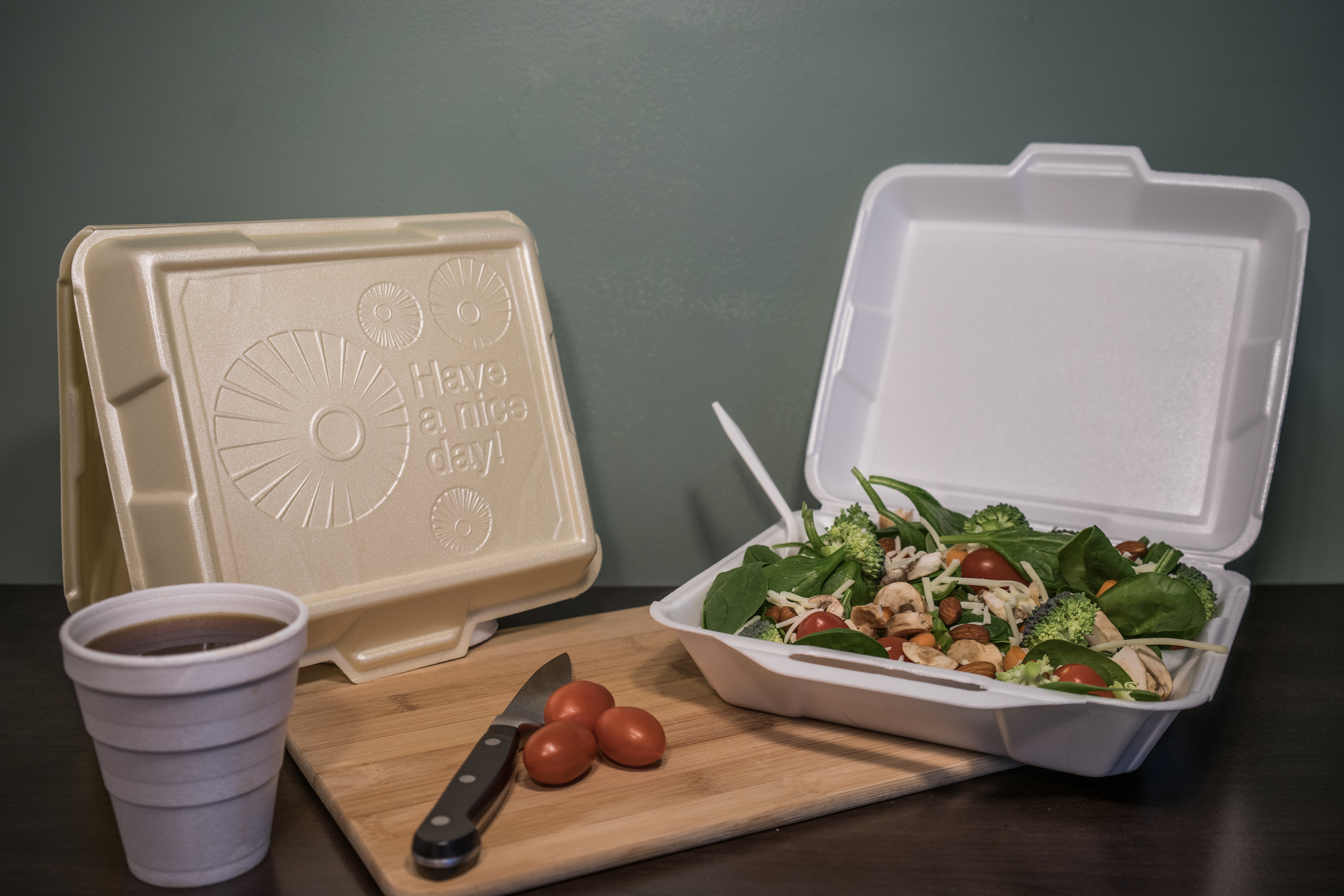By Ryan Farrell, Staff Writer
Over the past decade, Maine has become increasingly well known for its environmental awareness and restoration efforts. This concept has been a heavy and prevalent topic around USM. The university has awareness programs and they enforce recycling and material reduction policies.
The state is trying to increase awareness about environmental issues while also promoting alternative products, practices and services. On April 4, the effort was furthered when the Maine House voted to approve bill L.D. 289. This bill would ban the use of single use foam containers by 2021. These are utilized by restaurants, cafes and other facilities. According to the Natural Resources Council of Maine, affordable alternatives can be crafted from hemp or other natural products that can be grown and produced in Maine.
Although the State of Maine Legislature declared the vote won 87-51, it still requires additional voting in the Maine House. If it passes, it will pass on to the Senate where a final vote will decide the outcome. While the ban wouldn’t be statewide, it would enforce bans in a significant amount of towns. There are already bans in effect in coastal regions such as South Portland, Camden and Bar Harbor.
Maine Grocers & Food Producers Association opposes the bill due to its direct effect on the organization, reports the Portland Press Herald.
Short term containers and most single use plastic bags possess a compound known as polystyrene. While polystyrene is recyclable, Maine doesn’t have a recycling facility capable of breaking it down. Over the years, polystyrene has filled the ocean and it has been negatively affecting marine life.
According to National Geographic, the material can obscure and damage marine life and it can also severely alter marine ecosystems. The damage could come from ingesting materials or chemicals such as Bisphenol A. Polystyrene also floats through the water, picking up algae, invertebrates and other organisms. When the container moves through the ocean, it brings these organisms to non native areas which can severely alter the ecosystem.
Though this ban would affect a significant amount of businesses, there are exceptions to the bill. Hospitals, grocery stores, Meals on Wheels, and lobster dealers will be permitted to use these containers. Meat containers are a significant contributor to the marine pollution. While the new bill would alleviate the problem, it wouldn’t solve it completely.
Even though it hasn’t been decided on yet, this bill illustrates the direction that Maine is going in. This is only one effort that the state has put forth. If it passes, members of the Maine House look to explore a statewide ban that currently isn’t enforced in any other state.
This effort is subsequent to the recent effort to remove one use plastic straws. USM replaced their plastic straws with paper ones while promoting reusable metal straws. Although USM dining services use plastic one-use containers, these proposed natural alternatives could be implemented to control the university’s effect on the environment.

